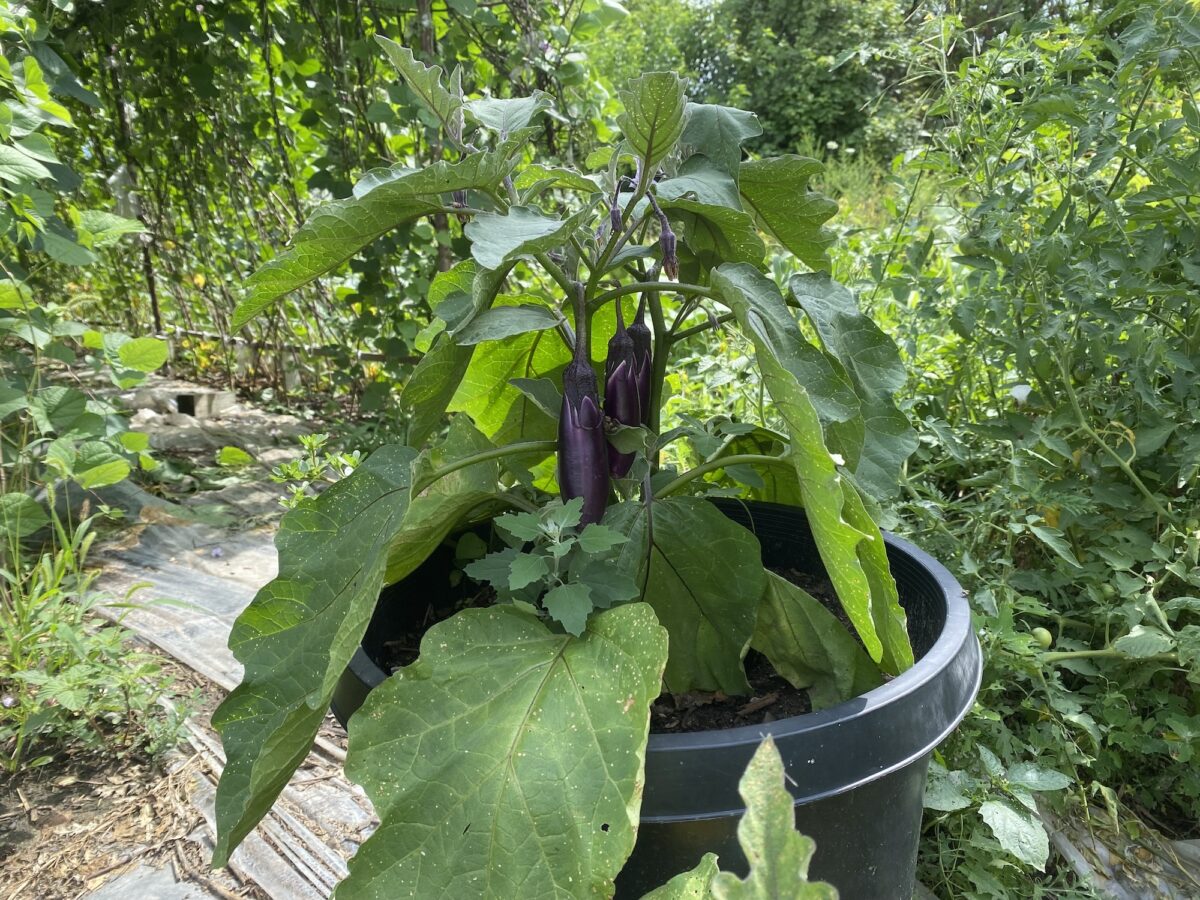by Aysha Udin

This piece is part of the Detroit Journalism Summer Camp, run by The Detroit Writing Room in partnership with Planet Detroit.
Local gardens are thriving throughout Detroit. Initiatives like Keep Growing Detroit’s Garden Resource Program and Grown in Detroit are planting the seeds for urban agriculture to grow across the city. At the same time, neighborhoods are taking initiative by creating community gardens. According to Planet Detroit, approximately 2,200 community gardens and farms existed in the city, as of 2023.
Detroit’s urban agriculture stems from a mix of individual and group projects. As Detroit faces an ongoing food desert, these green spaces offer more than just produce. The gardens provide fresh goods, connect the community and beautify vacant neighborhoods.
Detroit’s first community garden was established in 1893 by Mayor Hazen Pingree. He and his team wanted to solve a hunger problem accompanying a recession that left many workers unemployed. According to Smithsonian Gardens, the program offered plots of land and seeds to the unemployed, with instructions on how to cultivate a garden. From this, the concept of urban gardens gained popularity, and they spread throughout America.
During the 20th century, the city began to steer away from agriculture and embrace the automobile industry. Deindustrialization in the mid 1900s further impacted the city’s agriculture and led to the decline of farming, sparking “food deserts” within the city. Food deserts are areas that lack healthy and affordable food options, often due to the absence of grocery stores or supermarkets.
Turning Blight Into Beauty
In the past few decades, several groups have helped community gardens blossom again, creating a safe space for people of all ages.
“We cleared two city blocks of abandoned housing — 14 homes total — that were being used for illegal dumping and drug activity,” says John George, executive director of Detroit Blight Busters, which he founded in 1988. “We didn’t want our children growing up around that negative energy. So after clearing the properties with sledgehammers and people power, we put in a community garden.”
Looking for solutions, Detroiters have tried to maintain the tradition of farming and community gardens. Several nonprofits such as Detroit Blight Busters have emerged to promote urban agriculture, supporting local neighborhoods by funding garden projects and creating opportunities for residents and local farmers to earn income.
Growing Together
The community plays a huge role in establishing these programs. Neighborhood programs also impact local residents through block parties, informing residents and more. Community garden programs with similar goals also partner with each other, connecting different areas of a community.
Sarah Clark, director and co-founder of Cadillac Urban Gardens, says the biggest challenge when creating a community garden is “trying to find a sustainable way to water the garden.”
She says Detroit Cristo Rey High School’s Kinematic Wolves robotics team built a rain catchment system in the center of the 1-acre garden in Southwest Detroit.
“We’ve been working for a while to get it functional,” Clark says. “The youth are learning every time they come up with new designs for it. They did an update to it this year and have added solar panels. So it wouldn’t water the whole garden, but we could water the center of the garden with this rain catchment system.”
Several groups — including Blight Busters, Cadillac Urban Gardens and Bhandu Gardens — have created pollinator gardens. These gardens support pollinators such as bees, butterflies and hummingbirds, providing them with nectar and pollen.
Having affordable and local produce makes healthy options accessible for low-income communities. The gardens also provide a stepping stone for farmers to earn income.
Emily Staugaitis, co-founder of Bhandu Gardens, says her garden’s income has helped her team. Staugaitis partnered with fellow gardener Minara Begum to commercially farm produce in Detroit’s Banglatown neighborhood.
“It all started when Minara and her family moved here. Her husband had a job, but she was home with little kids, and it’s really hard to be a single-income household in the United States; there were these constraints, and so it started with her being able to sell some of her garden produce. That’s how it all began,” Staugaitis says.
Besides selling fruits and vegetables locally, Bhandu Gardens has expanded to offer cooking classes, catering and pop-up events.
Local communities benefit from gardens in a multitude of ways. Coming together and establishing programs brings the community together and builds a network of connections.
Having access to healthy foods isn’t always equal, but community gardens plant more than just seeds; they grow connections, positive environments and opportunities. By supporting spaces like these, local communities can create programs that help them thrive.
Next time you see a garden blooming in your neighborhood, don’t just admire it. Ask how you can help it grow.

Aysha Uddin is a senior at Detroit International Academy for Young Women. Her interests consist of writing, reading, baking and crocheting. She was initially drawn to journalism as a hobby, but later, she became interested in exploring it further and pursuing a career in journalism. Uddin also enjoys joining clubs at her school; currently, she is in the broadcast club, robotics and National Honors Society, and occasionally volunteers for school events.


